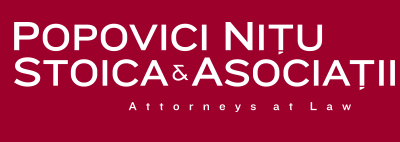- About Us
-
Expertise
- Banking & Finance
- Capital Markets
- Competition & Antitrust
- Corporate & Commercial
- Data Privacy
- Employment & Pensions
- Energy & Natural Resources
- Gambling & Betting
- Healthcare & Pharmaceuticals
- Insurance
- Intellectual Property
- International Arbitration
- Litigation
- Mergers & Acquisitions
- Project Finance/PPP, Concessions & Infrastructure
- Public Procurement
- Real Estate
- Restructuring & Insolvency
- Sports Law
- Tax
- Telecommunications, Media & Technology
- Transports & Logistics
- White Collar Compliance & Defense
- Our team
- Careers
- Publications
- News and Press
- Contact
Articles
SCHOOL’S IN SESSION – ABC lessons for Romanian companies
LEGAL OPINION
With the beginning of a new school year for children, we also invite companies to be students and join us in learning the ABC. Although not as entertaining as learning the letters (ABCD…YZ), but just as important, this class will teach the Anti-bribery and Corruption (ABC) measures. Welcome!
 Alexandru Ambrozie, Partner and Ana Stoenescu, Associate - Popovici Nițu Stoica & Asociații
Alexandru Ambrozie, Partner and Ana Stoenescu, Associate - Popovici Nițu Stoica & Asociații
Although sometimes it is better for the good news to come first, starting with the not-so-good news will ensure that this class will end on a positive note.
On the downside, acts of bribery and corruption are thoroughly sanctioned in Romania with fines or imprisonment.
Directors, shareholders and/or employees may be accused of these offences either for being the author or an accomplice; also, the company may be investigated as well if it is proven that the individuals acted in the name of the company or even just in its interest.
In spite of these offences and hard sanctions, the Romanian ABC legal framework does not impose any legal compliance obligations or preventive measures for companies.
Unlike countries such as France, UK or USA that have regulated the ABC measures, the companies registered or which are conducting their business in Romania have no such obligations.
It might seem that we should be thankful for less compliance obligations, but it is not the case. The importance of any ABC measures implemented in a company incorporated in Romania arises in case of a criminal investigation. Prosecutors pay great attention to compliance measures when determining if a company acted with intent or negligence (in which case the conditions for certain offences may not be fulfilled) or when determining who committed an offence (e.g. just an employee, a third party, a supplier, or if the company was involved as co-author or accomplice).
Consequently, should a company be able to prove that prevention of bribery and corruption acts is a priority and it has instated policies, procedures and controls in this regard, the risks of criminal convictions for bribery or corruption are significantly lower. Luckily, companies may be inspired by the US and UK practice, by the recent French regulations or by the OECD recommendations when establishing preventive bribery and corruption measures.
We will draw your attention to a number of 5 key ABC measures to be taken into consideration:
1. Conducting ABC risk assessments (risk-mapping) – the first step to implementing any ABC measures is to conduct a risk-assessment. Identifying risk factors, calculating residual risks based on information and data from various sources in the company will ensure a compliance program that is tailored made. Keep in mind that effective ABC programs are adapted based on risk-assessments that are performed periodically, reflecting current risks.
2. Developing an ABC program – a proper compliance program entails policies, procedures, ethics and measures aimed at reducing the risks identified as a result of the risk-mapping. The program should be well implemented, reviewed and revised, as prosecutors analyze and dismiss any ‘paper programs’. Nonetheless, the company’s senior management should support and commit to implementing the internal controls, policies and any measures for preventing and detecting bribery and corruption.
3. ABC trainings for employees – ensuring that employees receive trainings (as part of the induction process, but also periodically) are a key compliance measure. The company should be able to prove that the trainings were not a mere formality, but instead they were (i) tailored according to different jobs and responsibilities; (ii) preferably face-to-face, not just made available through an e-mail; (iii) based on real examples, not only ideas or hypothetical scenarios; and most of all (iv) provided on a regular basis and whenever there is a significant change in the company’s ABC program. Also, participation to these trainings should be registered and, hopefully, if the trainings were effective, these registers will not be requested by the prosecutor, but keep them just in case.
4. Applying the ABC program to partners – implementing the ABC principles in business relationships is a must to any ABC program. This may be done by informing third-parties of the company’s principles and/or conducting third-party trainings. Special attention should also be paid to the contracts, which should include an ABC clause and regular audit requirements. Counterparty due diligence can involve a lot of work and sometimes companies prefer to engage third-party providers to conduct the checks. Taking these measures may ensure that a company will not ‘go down’ together with partners who may have stepped out of line.
5. Internal and external controls, together with whistleblowing channel – it is best for the control system to be structured on multiple levels and for it to include a compliance officer. The middle and senior management should be involved and receive reports from time to time from the control departments. If needed, external control may also be engaged.
A whistleblowing channel should allow employees to report behaviors that violate the ABC program or are questionable from an ABC perspective. Companies may choose how this channel is implemented, from hotlines, to engaging a third party or using the internet. Keep in mind that an effective whistleblowing channel allows employees to report anonymously. To complete the process, each report should be followed by an internal investigation which may lead to disciplinary sanctions and/or criminal complaints.
This list may keep on going, but as ABC compliance is still an unexplored territory for most Romanian companies, we’ve provided a ‘must’ package of ABC measures.
Although they are not yet mandatory, they may show their value when we expect it the less and, as we’ve all learned at some point, it is better ...to be safe than sorry.
Download Article











